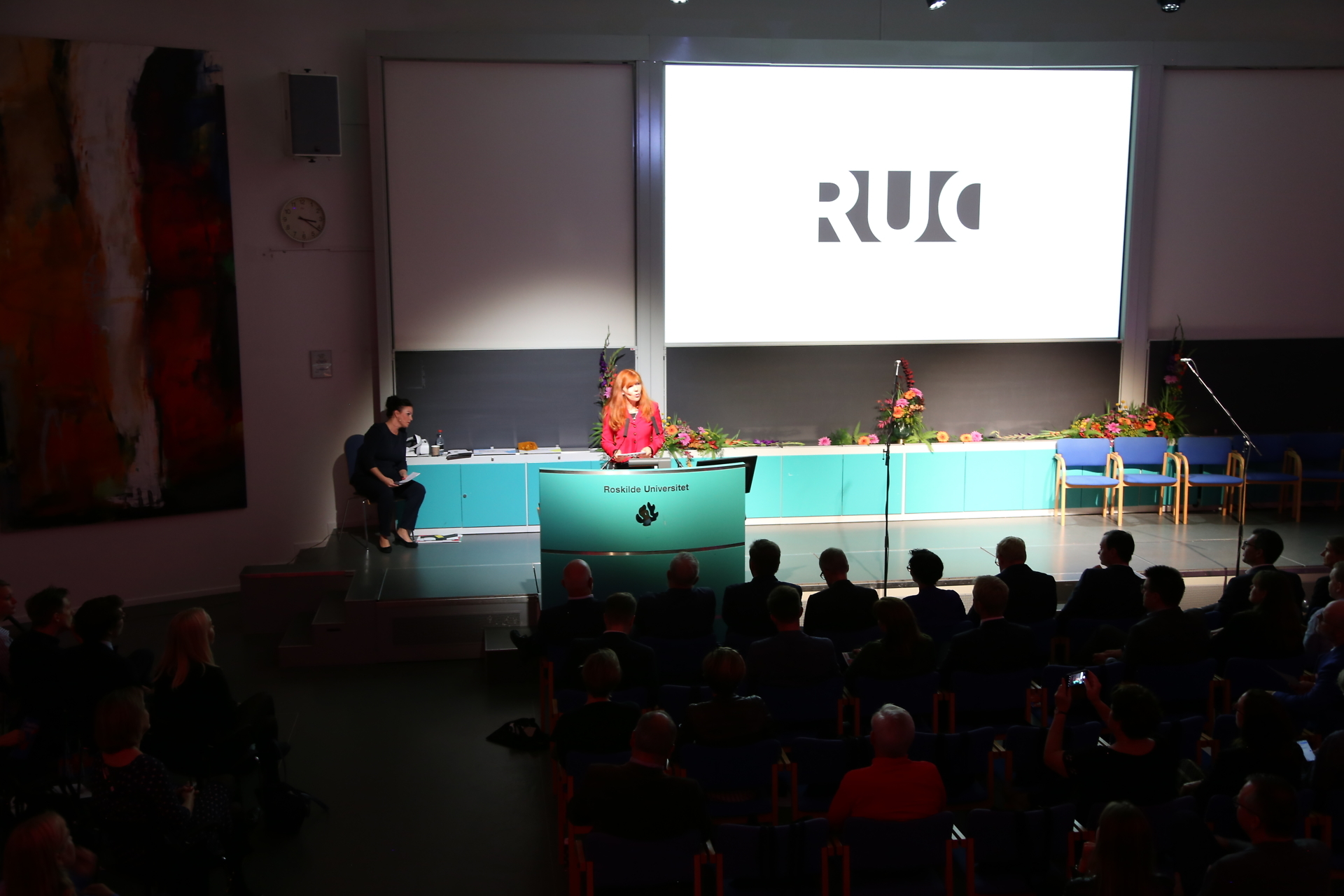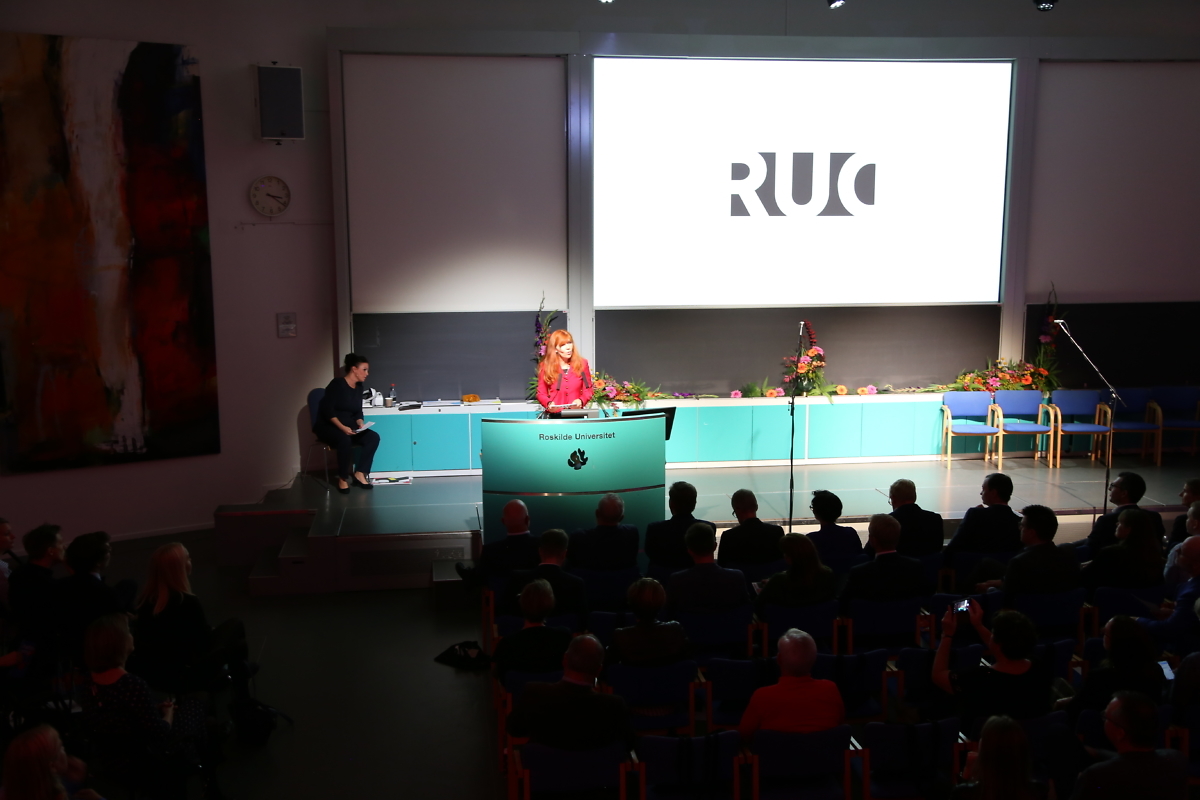However, while these consequences manifest differently on an individual level, as doctoral candidates we struggle with the cross-pressure that arises as a result of these challenges in combination with the temporary nature of our employment and project conditions. With this open letter we therefore wish to point out the need for:
A clarification of the PhD students’ situation to counter increasing uncertainty, especially for the PhD students who are entering the final period of their doctoral education; for the PhD students who has been forced to fundamentally restructure their planned research activities (e.g. data collection, research objectives, research stays); and for the PhD students who have not (or only to a very limited extent) been able to work during the lockdown of society.
A paid extension of all PhD students’ contracts, which would to some extent create a uniform solution for everyone, despite different individual circumstances. Such an initiative has already been implemented for assistant professors at the professional colleges in Denmark, just as the Independent Research Fund has given one-year extensions for ongoing research projects. For many PhD students, however, the compensation for both lost working hours and extra workload may also be supplemented with the possibility of exemptions in relation to teaching obligations, PhD courses, etc., which we know that Roskilde Doctoral Schools will also present as a solution in terms of so-called ‘interim guidelines’.
In the following, we will outline the issues that are highlighted by the PhD students across the four research departments at Roskilde University and substantiate each issue with specific examples offered by the PhD students in collectively gathered notes and writings about our situation (many of which have already been handed over to different layers of the university’s administration and management). It is important to point out that the issues outlined below overlap to a great extent and are interrelated on many levels, and that we are aware that not all issues are unique to the PhD students’ situation. However, they are included to emphasise how the mentioned cross-pressure is acutely felt when thoughts and experiences about the circumstances are put to words.
List of issues:
In line with many other public and private employees, Roskilde University’s doctoral candidates have been obliged to work from home in unfit settings that are often not arranged or approved as workstations and under circumstances that the Danish Health Authority cites as sources of stress, depression and burnout. Many must navigate in-depth work with care responsibilities for often small children (some with diagnoses and intensified care needs), other family members and roommates, and many have concerns for friends and family elsewhere or about the danger of infection, finances or limited social contact. This leads to unhealthy working postures, concentration difficulties, interruptions, fragmented working hours and lower productivity (if any productivity at all).
Many of Roskilde University’s doctoral candidates are facing such fundamental disruptions to their field work, laboratory work or other forms of data collection and empirical work that they have been forced to rethink key aspects of their research projects. The disruptions include hindered or severely restricted access to, for example, laboratories, archive collections, field sites and other locations, as well as contact to research participants and cosupervisors (in for instance hospitals) that has been limited or rendered impossible. Some also experience delayed or stranded proceedings in relation to their applications for access to certain archives and locations.
Many of Roskilde University’s doctoral candidates are reporting interrupted, delayed or cancelled PhD courses, summer schools, seminars, consortia, certifications, dissemination activities and conferences. Even where courses and activities are just postponed or restructured this is often critical because they are part of specific arrangements for the research projects, where, for example, certain methodological or theoretical inputs were planned to bring the projects forward in different ways.
For many of Roskilde University’s doctoral candidates the digitalization of teaching and supervision has meant that we’ve taken on a far heavier workload than usual in the past couple of weeks, and will continue to do so throughout the spring so that the university can carry on running as constructively as possible. Extra efforts (and work hours) are also required to deal with students’ personal issues and increased cooperation problems as a result of the mental pressure resulting from the lockdown situation (an observation that is also affirmed by Heads of studies and Heads of RUC’s basic sections).
For many of Roskilde University’s doctoral candidates research stays have been put on hold, and in many cases it seems more and more unrealistic that they will be possible to carry through, cutting us off from vital opportunities to build networks and contribute to international research environments and collaborations as well as getting crucial feedback on specific aspects of our research.
Many of Roskilde University’s doctoral candidates point out derivative effects of the general lockdown, such as the lack of access to research libraries and equipment, and limited or reduced opportunity for academic feedback on our projects, which is usually taking place via many formal and informal channels, such as lunch groups, office communities and in the daily contact with supervisors, external partners and other colleagues.
Overall, these issues constitute fundamentally changed conditions for the completion of our doctoral educations. The still ongoing challenges have not only resulted in severe disruptions of our research projects as well as in lost and/or disadvantageously restructured working hours, but for many the mentally and physically exhaustive circumstances will also affect our well-being both in the short and the long term. In many cases, and on several different parameters, this will furthermore reduce the quality and originality of our research, our acquired competences and our research networks, which can ultimately and crucially affect our future career opportunities.
We, the PhD Students, therefore stand together with our colleagues and our employer and wish to contribute to the efforts to find a national or local solution in order to secure paid extension of our contracts together with the unions, Universities Denmark and the Ministry of Education and Research, and we appreciate the efforts to prepare revised PhD guidelines via Roskilde Doctoral Schools at the local level.
Signed:
Leif Pedersen, Department of Communication and Arts.
Julie Vulpius, Department of Communication and Arts.
Jakob Aabling-Thomsen, Department of Communication and Arts.
Pernille Welent Sørensen, Department of Communication and Arts.
Henrik Andersen, Department of Social Sciences and Business.
Mikkel Mouritzen, Department of Social Sciences and Business.
Oda Hustad, Department of Social Sciences and Business.
Sarah Humboldt-Dachroeden, Department of Social Sciences and Business.
Nikoline Oturai, Department of Science and Environment.
Michael H. Feldballe Hansen, Department of Social Sciences and Business.
Malene Broch Clemmensen, Department of People and Technology.
Anna Cornelia Ploug, Department of Communication and Arts.
Peter Leys Department of Social Science and Business
Mai Nanna Schønau, Department of People and Technology
Gry Ellegaard Thorsen, Department of People and Technology
Nina Moesby Bennetsen, Department of People and Technology
Amalie Marie Bonde Jørgensen, Department of People and Technology
Anne Julie Arnfred, Department of Communication and Arts.
Marija Petkovic, Department of Science and Environment.
Josef Batikha, Department of Communication and Arts.
Liv Navntoft Henningsen, Department of Social Science and Business.
Martha Monrad, Department of Communication and Arts.
Kira Lieberkind Eliasen, Department of Science and Environment
Sebastian Jon Holmen, Department of Communication and Arts.
Anne Clausen, Departement of People and Technology
H. Cecilie Petersen, Department of Science and Environment
Marie Lunau Dejgaard, Department of Social Science and Business
Mette Langeberg Lund, Department of Communication and Arts.
Maria Bendix Wittchen, Department of Communication and Arts.
Jeremy Payne-Frank, Department of People and Technology
Mathias Hulgård Kristiansen, Department of People and Technology
Maja Fagerberg Ranten, Department of People and Technology
Gvantsa Gverdtsiteli, Department of Social Sciences and Business
Ane Kirstine Aare, Department of People and Technology
Sigga Waleng, Department of People and Technology
Lotte Franziska Cooiman, Department of Social Science and Business.
Johanne Davidsen, Department of Science and Environment
Camilla Sabroe Jydebjerg, Department of Social Science and Business.
Kai Roland Green, Department of People and Technology
Sorcha Thomson, Department of Social Science and Business
Marie Benkert Holtet, Department of Communication and Arts
Natasja Ringsing Nielsen, Department of Science and Environment
Sofie Loklindt Christensen, Department of Social Science and Business
Gry Marie Tybjerg, Department of People and Technology
Nanna Kirstine Leets Hansen, Department of Communication and Arts
Joanna Wisbech, Department of People and Technology
Mathias Mølbak Ingholt, Department of Science and Environment
Lisa Samuelsen, Department of Science and Environment
Monica Hamann Sandgaard, Department of Science and Environment
Elizabeth Toft Kristjansen, Department of Social Science and Business
Karmen Tornius, Department of Social Science and Business
Zahraa Sheydaafar, Department of Science and Environment
Saeed Mehri, Department of Science and Environment
Tobias Wuttke, Department of Social Science and Business
Line Jakobsen, Department of Social Science and Business
Ahmad Wesal Zaman, Department of Social Science and Business
Louise Søgaard Hansen, Department of People and Technology
Bernd Bonfert, Department of Social Sciences and Business
Jannik Egelund, Department of Social Science and Business
Alexander Støvelbæk, Department of People and Technology
Kamilla Hjortkjær, Department of Communication and Arts.
Kasper Anthon Sørensen, Department of People and Technology
Morten Fischer Sivertsen, Department of Communication and Arts.
Birthe Linddal Jeppesen, Department of People and Technology.
Ida Frost Kyvsgaard, Department of Social Sciences and Business.
Martin Visby Buchard, Department of People and Technology
Molly Occhino, Department of Social Science and Business
Ilse Maria Renkens, Department of Social Sciences and Business
Stine Bull Jessen, Department of Science and Environment
Sigri M. Gaïni, Department of Communication and Arts
Mads Kæmsgaard Eberholst, Department of Communication and Arts
Anna Umantseva, Department of People and Technology
Søren Salling Weber, Department of People and Technology
Louise Lynn Halle, Department of Science and Environment
Christopher Gyldenkærne, Department of People and Technology
Solvej Knudsen, Department of Science and Environment
David Noirat, Department of Science and Environment
Anne-Sophie Bogetoft Mortensen, Department of Communication and Arts
Sofie Marie Billekop, Department of People and Technology
Mads Roke Clausen, Department of Social Sciences and Business
Eva Mailund, Department of People and Technology
Kirstine Aakerlund Rosendal, Department of People and Technology
Zamra Sajid, Department of Science and Environment
Anna Sofie Hansen Schøning, Department of Communication and Arts
Camilla Valeur Nygaard, Department of Social Science and Business.
Anders Hovmøller, Department of Social Sciences and Business
Annesofie Lindskov, Department of Social Sciences and Business
Benjamin Schwarz, Department of Social Sciences and Business
Laura Friedeheim, Department of Science and Environment
Josephine Bjergbæk Olsson, Department of Science and Environment
Raimundo José Elicer Coopman, Department of Science and Environment
Ida Ebdrup, Department of People and Technology
Mark Booker Nielsen, Department of People and Technology
Nynne Barchager, Department of People and Technology
Signe Ravn-Højgaard, Department of Communication and Arts
Søren Iversen, Department of Science and Environment
Sina Ariaee, Department of Science and Environment
Kristian Bisgaard Haug, Department of Social Sciences and Business
Sacha Manik, Department of People and Technology
Fina Lewenhaupt Vilholm, Department of People and Technology
Abdullah Lone, Department of Science and Environment
Gustav Egede Hansen, Department of Social Sciences and Business.
Anders Jakobsen, Department of People and Technology
Nanna Louise Skov Nielsen, Department of Science and Environment
Morten Skov Madsen, Department of Social Sciences and Business

